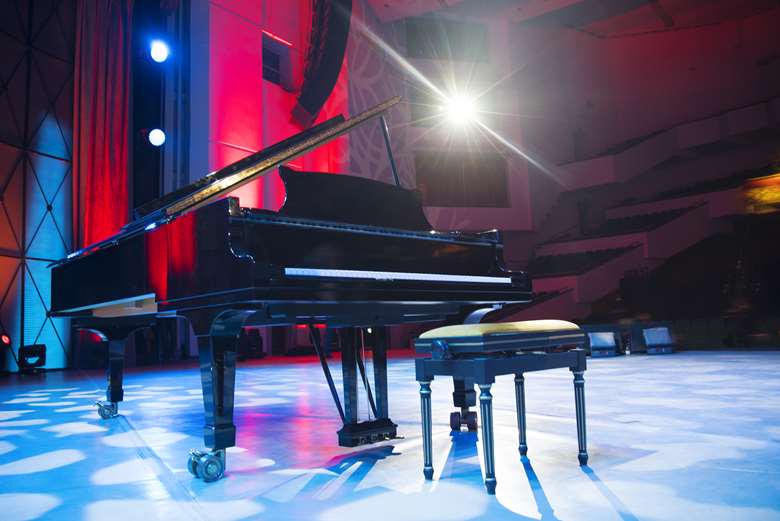Music competitions need to up their game
Charlotte Gardner
Friday, November 20, 2020
With some changes, music competitions could be more useful to the industry, argues Charlotte Gardner

When international music competitions are notoriously hit and miss when it comes to spotting the brightest and most interesting talents of the new generation, it's no wonder they get a big talent-spotting thumbs-down from some of my most-admired colleagues in the world of young artist development.
However whenever I'm personally tempted to write them off I remember when they've given me my first glimpse of an artist I'm genuinely drawn to. For instance it was thanks to the 2017 ARD competition in Munich that I got my first hearing of Latvian violinist Kristine Balanas. Or there was the 2019 Tchaikovsky Competition, where Russian violinist Sergey Dogadin burst onto our radars at the comparatively mature age of 31 with a blinder of a finals performance which won him not just first prize, but got him spotted and signed for management by HarrisonParrott. So when competitions do upon occasion introduce us to artists we should know about, and when the number of competitions is growing rather than shrinking, and when increasingly they're offering career-launching prizes such as recordings and management, I believe it makes sense to have a proper conversation about how to increase their artistry hit rates and thus make them more relevant to the music industry at large. And consequently do better for those musicians who do apply. Competitions also owe it to themselves, because there's only so many uninteresting winners you can force upon a major record label or promoter who has agreed to be a part of the prize package, before they walk away.
There's only so many uninteresting winners you can force upon a major record label or promoter who has agreed to be a part of the prize package, before they walk away
Before I launch in with some suggestions, don't think that I'm not aware that what a competition requires of its young competitors bears precious little correlation to what is demanded of a performer in the real world: the volume of repertoire to be first learned and then performed over a the space of a mere week or two; the pressure of performing it before a critical panel of major names who may even be your idols. It's a physical, psychological and emotional marathon whose inherent flaws will always hamper some of the most thoughtful rising talents. Equally, I'm aware that no generation boasts enough international-level talent to fill today's plethora of competitions. However that's actually fine, because there's a valid place for a second-tier group where people can get their competition legs before applying for the high-profile majors.
So thinking predominantly of those majors, I'll begin by suggesting that it's nonsensical to couple a winner's package promising to kickstart a performance career with a judging panel drawn solely from the worlds of teaching and performance on the relevant instrument. For industry-savvy decisions you need a sprinkling of real-world influencers and decision-makers: record label A&R, managers, promoters, young artist schemes, music directors and critics. Recent cooberating examples of this include the 2019 Windsor Festival International Strings Competition, whose jury included Decca Classics Executive Producer Alexander Van Ingen and Philharmonia Orchestra Managing Director Helen Sprott awarded its top rankings to three artists already making waves on the concert platform. Likewise the commercial success of 2018 Leeds International Piano Competition winner Eric Lu, chosen by a jury including BBC New Generation Artist Scheme founder Adam Gatehouse and Southbank Centre Director of Music Gillian Moore. Or the steadily rising career of 2018 Long Thibaud Crespin (LTC) Violin Competition winner Diana Tishchenko, chosen by a jury including Verbier Festival Managing director Martin Engstroem and conductor Jan Pascal Tortelier. Compare all that to the lacklustre finalists and surprise rankings at the 2019 LTC Piano Competition, where the audience actually booed its jury comprised entirely of pianists and teachers.
Next, on to the marking. Clearly, no system is infallible. I also accept that anonymous voting and no private conferring is the safest way to prevent judges from being influenced or bullied away from their gut instincts. However I also think that if a competition has assembled a wide-ranging jury then there's a valid argument for controlled roundtable debate to precede an anonymous vote. A teacher needs to be reminded to think beyond technique, and a promoter needs to know if a colourful personality isn't playing at an acceptable technical level.
Finally, not a suggestion but a firm statement aimed at all competitions regardless of size: that it is straightforwardly unacceptable for either a member of a competition's jury or its non-judging artistic director to have a current or recent pupil among its applicants. No excuses, no exceptions. Especially when these days there are so many competitions to enter. Abstaining from voting on your own pupil is not enough; and remember that one recent unfairness scandal involved not a voting judge but the non-judging artistic director of Hanover's 2018 International Joseph Joachim Violin Competition, accused of attempting to influence his judges in favour of his own pupil. Yes, many teachers are capable of acting honourably, but when others are not, the scenario will always raise suspicions which, even when unsubstantiated, can hang over a fledgling performer's head for years. What kind of teacher would choose that for their pupil? It's a PR disaster for everyone, and I'm amazed that the World Federation of International Competitions is yet to simply ban it outright.
Competitions will never be perfect. However I truly believe they can be better than they currently are.